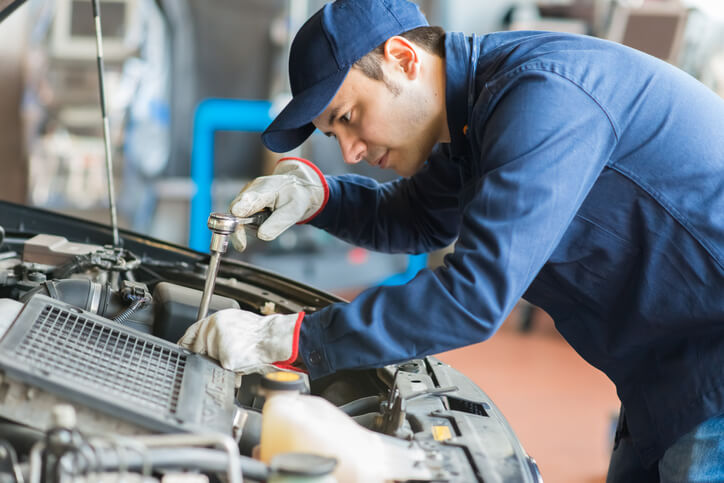The Importance of Proper Posture After Diesel Mechanic Training
Repairing engines is honest, decent work, but it can be a back-breaking job sometimes. Spending hours and hours on end hunched over engines will inevitably take a toll on your body in the long run, even if fixing broken-down engines is your one great passion.
Proper posture may seem minor in the grand scheme of diesel mechanic training, but its impact on health, performance, and overall job satisfaction should not be underestimated. Maintaining good posture can help diesel mechanics avoid musculoskeletal disorders, achieve higher energy efficiency, focus more efficiently, prevent occupational hazards, and maintain long-term career stability. This blog post will explore why proper posture is crucial for diesel mechanics and how it can positively impact your health and overall work performance.
It Enhances Energy Efficiency and Reduces the Risk of Musculoskeletal Disorders
Working as a diesel mechanic after diesel mechanic training involves spending extended periods in various positions, such as bending, kneeling, and reaching. Over time, these repetitive movements can lead to musculoskeletal disorders, including back pain, neck strain, and joint problems. A mechanic can significantly reduce their risk of developing such issues by maintaining proper posture. During a task, you should maintain a neutral position, keep your spine aligned, and keep your shoulders relaxed. Correct posture helps distribute the workload evenly, minimizing stress on specific muscle groups.

By extension, proper posture not only helps prevent physical ailments but also contributes to increased energy efficiency and physical stamina. When mechanics maintain good posture, their bodies are in optimal alignment, allowing for smoother movement and reduced fatigue. The more energy mechanics conserve, the more efficiently they can work for extended periods. Avoid slouching and hunching over while working. Good posture also promotes better breathing and circulation, further enhancing overall endurance.
It Prevents Occupational Hazards and Promotes Long-Term Career Sustainability
Diesel mechanics work in environments where safety hazards are ever-present, but maintaining proper posture can be crucial in reducing the risk of occupational accidents. Slouching or assuming awkward positions can compromise stability and balance, making you more susceptible to potentially deadly slips, trips, or falls. Additionally, poor posture may lead to decreased alertness, which can increase the likelihood of accidents when working with heavy machinery or hazardous materials. To create a safe working environment for yourself and your co-workers, you should prioritize correct posture, as our diesel mechanic training modules at CATI school emphasize.

Further, the diesel mechanic profession can be physically demanding, and improper posture can accelerate wear and tear on the body. Over time, chronic pain and discomfort may lead to career burnout and early retirement. You must practice good posture habits early on to maintain a long and fulfilling career. Taking care of your body through proper alignment and ergonomics ensures that you can continue to work efficiently and remain active in the profession for years to come.
It Improves Focus and Concentration After Diesel Mechanic Training
Maintaining proper posture has a positive impact on cognitive functions as well. When mechanics adopt correct body alignment, they experience improved blood flow to the brain, enhancing mental clarity, focus, and concentration. Staying focused on complex diagnostic tasks and intricate repairs is crucial in diesel mechanics. A good posture can help you maximize your cognitive abilities and work more precisely, reducing the likelihood of mistakes.
Do you want to explore our diesel mechanic courses?
Contact CATI for more information.

